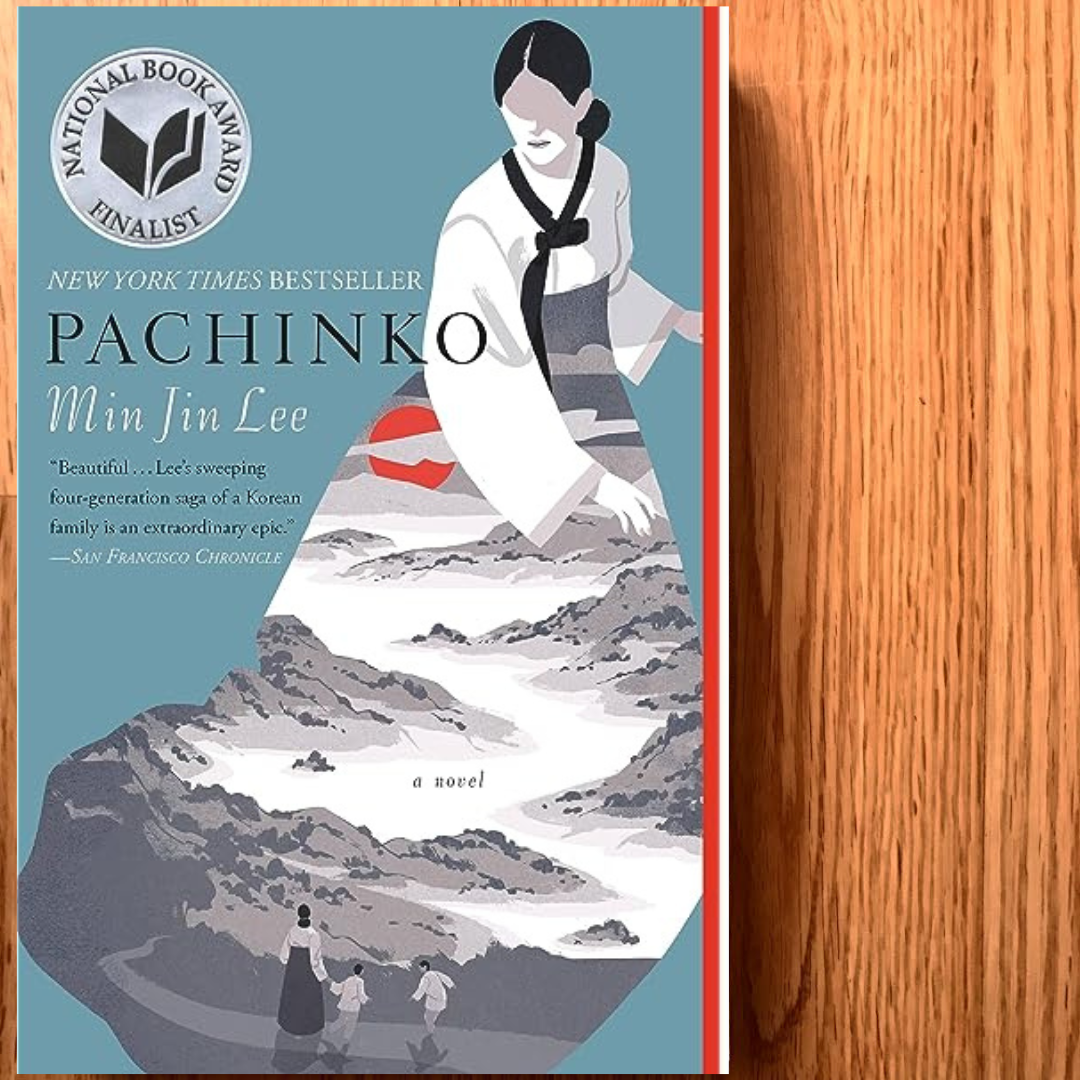By Carmen Lebar
Content warning: racism, death, suicide, physical violence, sexism
Min Jin Lee’s Pachinko is a generational novel set in Korea and Japan during the 1900s and follows the life of Sunja and her family over four generations. Sunja is a young girl who works with her family at her home where they lodge fishermen. During this time, she falls in love with a wealthy man and becomes pregnant. When she finds out he’s married, she is convinced by her parents to marry a minister who is staying at their lodge on his way to Japan. Unbeknownst to Sunja, her decision will have consequences for the generations after her. Pachinko excels in its storytelling, expertly weaving the connections of all its characters to the real-life happenings in Korea and Japan in the 20th century.
Sunja’s story begins with a decision. After falling in love with the wealthy Koh Hansu and becoming pregnant with his child, she eventually decides to marry the dutiful minister Baek Isak, whom she cared for when he was dealing with tuberculosis. Her decision ultimately changes the fate of her children and everyone else connected to her. As the novel depicts the changing political and social climate of Korea and Japan, it reveals how the characters are viewed in society. This interconnectivity is brilliantly written by Lee, showcasing how personal decisions can affect how one is perceived in society, and how these decisions don’t only affect the person making them. I particularly enjoyed reading about the differences between Sunja’s children—Noa and Mozasu—and how they navigate growing up and finding a place in society differently based on their mother’s decision.
With Sunja’s choice made, she moves to Osaka with Isak to live with his brother and sister-in-law. They have to work hard to survive as their passage into Japan is wrought with uncertainty, but Sunja and her sister-in-law, Kyunghee, do whatever it takes to keep their family afloat. Many hardships and dangers await the family, and it’s through the dedication of these women that many of these hardships and danges are avoided.
In this novel, Lee writes about women in a nuanced way. They have their faults but ultimately show integrity, resourcefulness, and loyalty. It was pleasant to see such complex female characters and the determination they had to help their loved ones in any way they could. Lee depicts women as more than just mothers or caregivers but as people with an amalgamation of motivations and desires.
Pachinko is a modern-day historical classic. The novel takes the reader on a journey through Sunja’s life, but also the historical, political, and social changes that were occurring in Japan and Korea in the 20th century. Lee is artful with her writing, creating vivid imagery, and haunting plotlines. Although the novel is nearly 500 pages long, it sweeps you away in its storytelling, making it a fast and engrossing read. I would recommend Pachinko to historical fiction lovers, and readers who love reading generational novels. It’s an excellent novel depicting important moments in history, and one that will be on modern-day classic reading lists in the near future. Pachinko is a novel I’ll never forget, and I’m confident Sunja’s story will captivate readers in the years to come.

